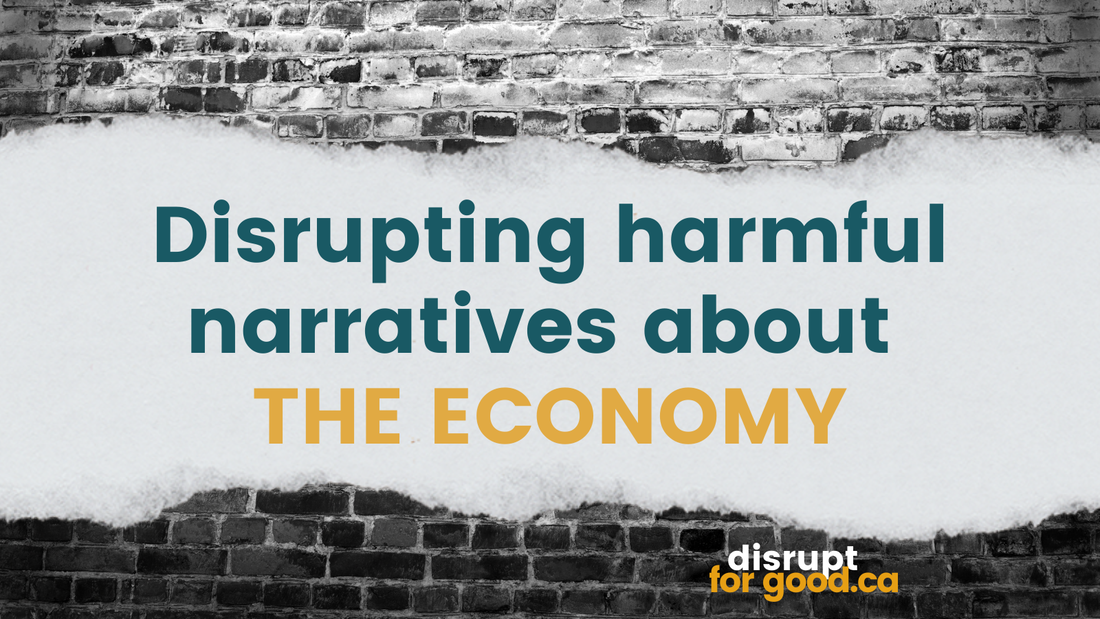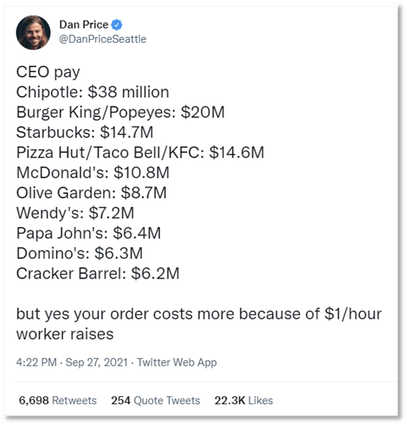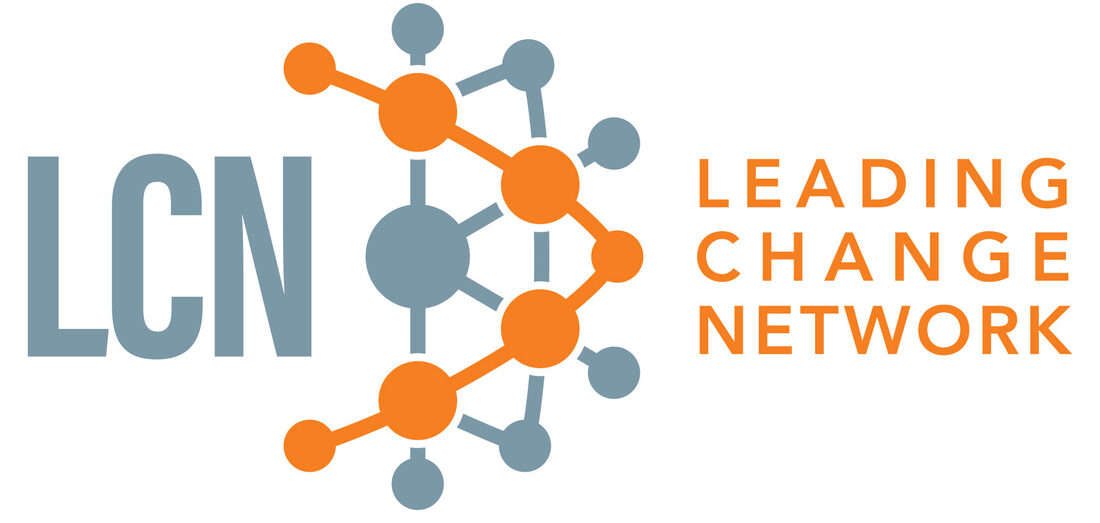|
It’s Living Wage Week! You know your girl is a big Living Wage champion, so this month’s rant will tackle a few of the most pervasive and harmful economy myths, especially those related to giving low-wage earners raises. But first, let’s set the mood with a few words from our communications queen, Anat Shenker-Osorio: “After everything that has happened, how is it possible that conservatives still win debates about the economy? Time and time again the right wins over voters by claiming that their solutions are only common sense, even as their tired policies of budgetary sacrifice and corporate plunder both create and prolong economic disaster.” - the front book flap of Don’t Buy It, by Anat Shenker-Osorio. Ok. When I read that, my takeaway is that communication is key to this grand deception. Which means communication is--at least in part--our way out. Here we go. Myth #1: Deficits leave us no alternative but to cut social spending As Linda McQuaig wrote in Shooting the Hippo, the national deficit has at times dominated the Canadian political scene, and “no subject has been so misunderstood.” Social systems including health care, education, and welfare programs are slashed to lower the deficit, because “We are living beyond our means, and our children will reap the consequences.” Does that sound familiar? Does it sound...true? Does it make you feel guilty and like you can’t question it? McQuaig argues that it is “a distortion of the real story, a mythologized account designed to persuade us to accept what we don’t want.” “This newly dominant ideology has many threads, but essentially it is about lowering our expectations of what a society can do for its citizens.” - Linda McQuaig, Shooting the Hippo McQuaig weaves a sordid tale about the media and the Bay Street Elite, and how through sheer volume this dominant message begins to feel inevitable. (The book is great, you should totally read it.) As she lays out carefully in the book, unemployment and underemployment are actually large contributors to deficit problems, creating a gap between our potential output and what our economy actually produces. And the cause of our high unemployment, at least in the 1990s when McQuaig was writing this book? A totally misguided war on inflation, leading to super high interest rates, leading in turn to an unemployment crisis. (Seriously, just read the book.) I daresay that currently, underemployment has become more of a problem than unemployment. (Hence my championing of Living Wage.) And if anyone is becoming dependent on social programs, it’s the employers who are getting away with paying poverty wages while their employees have to access food banks and rent supplements to meet the costs of living. But I digress. SO, alternate narrative to myth #1: We raise more than enough money through our tax system to pay for all of our government spending programs when enough people are working. This leads us to our next myth: Myth #2: All inflation is bad news There has been much ado about inflation lately. An elected official told me a few weeks ago that our current inflation rate of 4.1% was “astronomical.” That sounded a little hysterical, so I looked into it. This article seemed more level-headed, explaining that inflation is measured against prices from the previous year, and with some goods (gas, hotel rooms, travel packages, etc.) falling so low during the pandemic, their recovery reads as a surge. Add in the current supply chain issues, and it’s no surprise to see prices on some items going up. This author concludes that “from a broader historical perspective, 4.1% is, comparatively, nothing.” McQuaig chronicles Canada’s mid-90s experiment with targeting zero inflation and the disastrous consequences of that decision, and the mental gymnastics to spin that failure as the result of over-indulgent social spending. She (and others) note that very high inflation can be problematic, but inflation in this single-digit range is very normal and no policy changes are needed to correct it. The main tool we have to correct for rising inflation is raising interest rates. Remember, one person’s debt is another person’s asset, and the very rich benefit immensely when interest rates go up. There is nothing neutral about that decision at all, and conservative think tanks will spare no expense to popularize the notion that fighting inflation is necessary. Myth #3: Raising Wages raises prices and any benefits cancel each other out so why bother Billionaire CEOs and the economists they employ indirectly through funded conservative think tanks like to warn us all about the negative effects of raising wages. But in 2016, researchers from the W.E. Upjohn Institute for Employment Research found that the claims were greatly exaggerated. They found that "wage-price elasticities are notably lower than reported in previous work: we find prices grow by 0.36 percent for every 10 percent increase in the minimum wage." Wage increases are only one factor in setting prices, and large increases in price attributed to government-mandated increases in minimum wages are likely increases in profit margin, hiding behind an expected price increase that can be blamed on the wage increase. Daniel Kuehn, a researcher at The Urban Institute agrees: “A wage hike might raise prices of goods and services, but the increases will be spread out among many consumers.” In other words, the threat of your $10 drive-thru meal doubling in price is alarmist. The evidence does not support this theory. Dan Price puts a bit of a finer point on it in this tweet: Myth #4: Raising Minimum Wages Costs Jobs
For this one, I’m just going to share verbatim, the International Trade Union Confederation press release about this year’s Nobel Prize in Economics: The award of this year’s Nobel Prize in economics has further exploded a decades-old myth that increasing minimum wages costs jobs. The prize was awarded to David Card, Joshua Angrist and Guido Imbens for real-world research in the 1990s that demonstrated, empirically, that the idea touted by conservative economists that higher minimum wages mean fewer jobs is not based on fact. ITUC General Secretary Sharan Burrow said: “These Nobel Prize winners have demolished the unproven, yet influential, theory that ensuring that workers have a decent minimum wage somehow means job losses. “Those who have peddled that mythical theory for decades, and the governments and institutions that have imposed the same theory, without proper evidence or against evidence to the contrary, are responsible for millions upon millions of people living in poverty. “This prize is a serious indictment of many economists in that it has taken some thirty years for the facts to be given prominence over a damaging and groundless idea. At a time when the world needs evidence-based and scientific research to tackle a global pandemic, economics too needs to be based on factual analysis rather than ill-informed and ideological speculation dressed up as legitimate policy advice. “Ensuring minimum living wages through statutory processes or collective bargaining is crucial to ending poverty; reversing the long-term trend of declining labour income shares; increasing demand; and building the basis for recovery – with jobs, decent work and resilience – in an increasingly unequal world.” Friends, that’s a spicy press release. And if I may, there are other, bigger-picture benefits of raises to consider, too: Whether it is an increase (note: we don’t have to say “hike” about a 35 cent increase just because they do) in the minimum wage or an increase based on an employer becoming a Living Wage employer, we know this: these raises bring the biggest benefit for our most vulnerable and precarious workers, most of whom are 25 or older, many of whom are racialized. We also know that money in the wallets of low-wage earners finds itself back in our local economy very quickly. (Actual economic stimulus, not that trickle-down BS.) To put it more plainly, this is our justice and equity work. In closing, I’ll circle back to the words of Linda McQuaig in Shooting the Hippo: “Scarcity of money favour[s] those with money. … What has certainly been lost is popular understanding of the importance of the issue and the impact on our lives. The world of money and banking has largely been taken away from ordinary people, who have been convinced that it’s simply too complicated to understand, that it’s better left to the bankers and brokers and economists regularly called upon for comment by TV current affairs shows.“ Going forward:
Additional Reading Boushey, Heather. Unbound: How Inequality Constricts Our Economy and What We Can Do About It. 2019. McQuaig, Linda. Shooting The Hippo: Death By Deficit and Other Canadian Myths. 1995. McQuaig, Linda and Brooks, Neil. The Trouble With Billionaires. 2010. Shenker-Osorio, Anat. Don’t Buy It: The Trouble With Talking Nonsense About the Economy. 2012. Varoufakis, Yanis. Talking To My Daughter About the Economy, or, How Capitalism Works--And How It Fails. 2017.
0 Comments
Leave a Reply. |
AuthorI'm Jennifer. I am an advocacy and communications strategist working with multiple charities and nonprofits. And I want to disrupt our sector for good. Archives
April 2024
Categories |



 RSS Feed
RSS Feed
